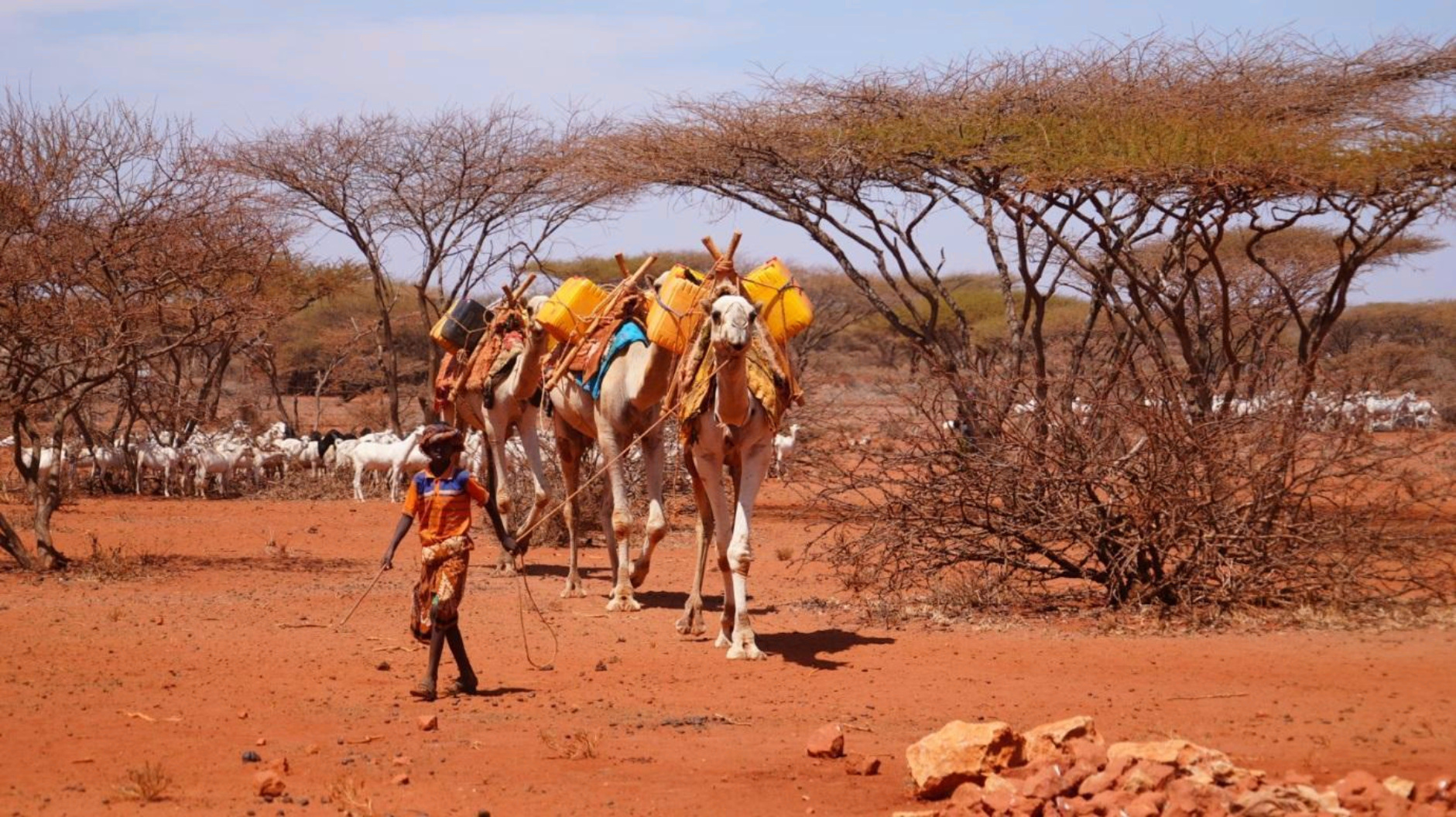NRC’s WATER BOREHOLE PROJECT
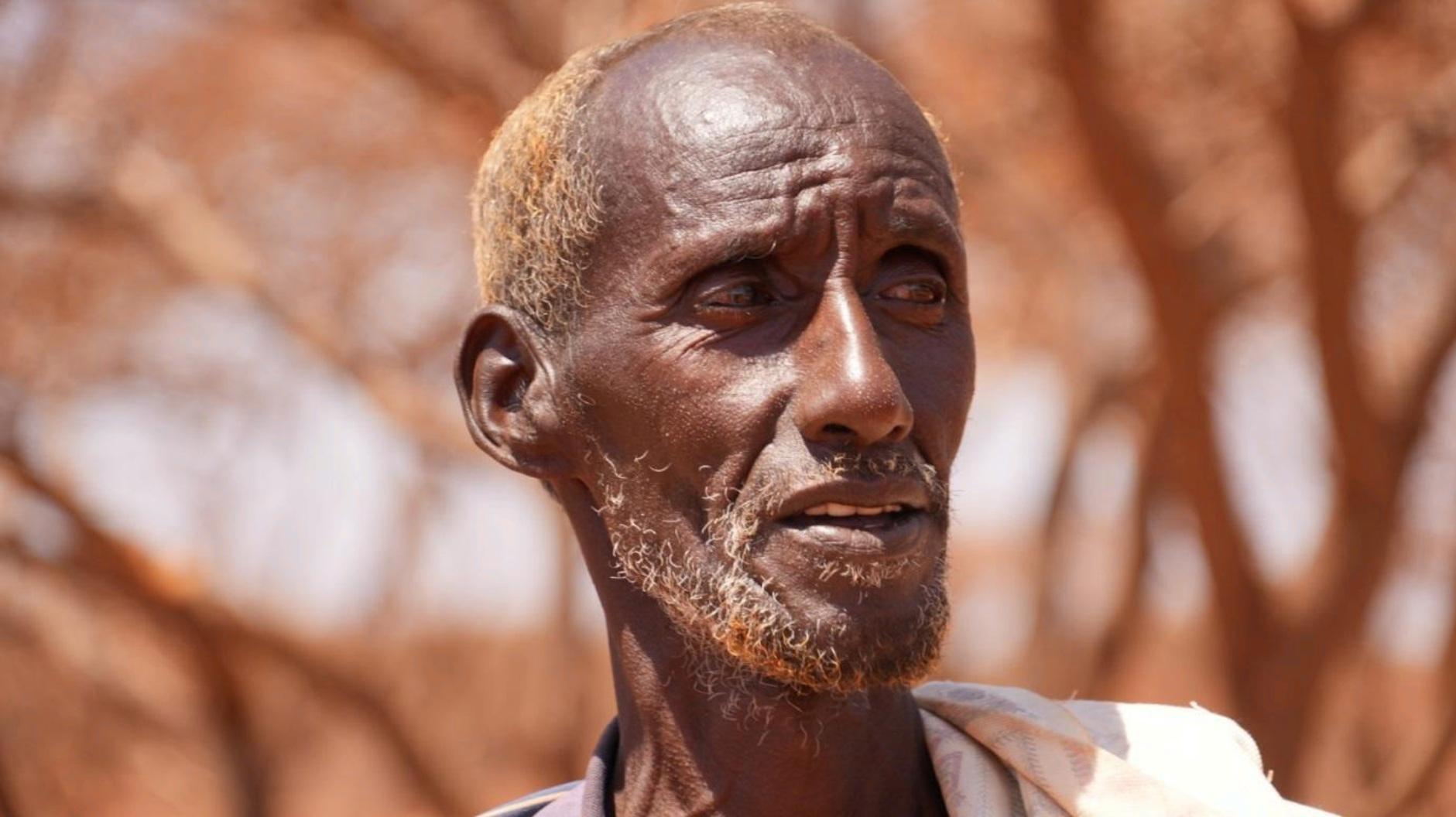
When 73-year-old pastoralist Ali Arif Dahir set off on a journey with his family and livestock from Ethiopia’s Somali region, he didn’t know that he would trek for 25 days before finding a borehole deep inside Somalia.
Arif, a father of 19 children, lived in the Dagahbur region in Ethiopia for decades. But four consecutive failed rain seasons and sporadic communal conflicts over scarce resources forced him and his family to cross the border into Somalia in a desperate search for water and pasture.
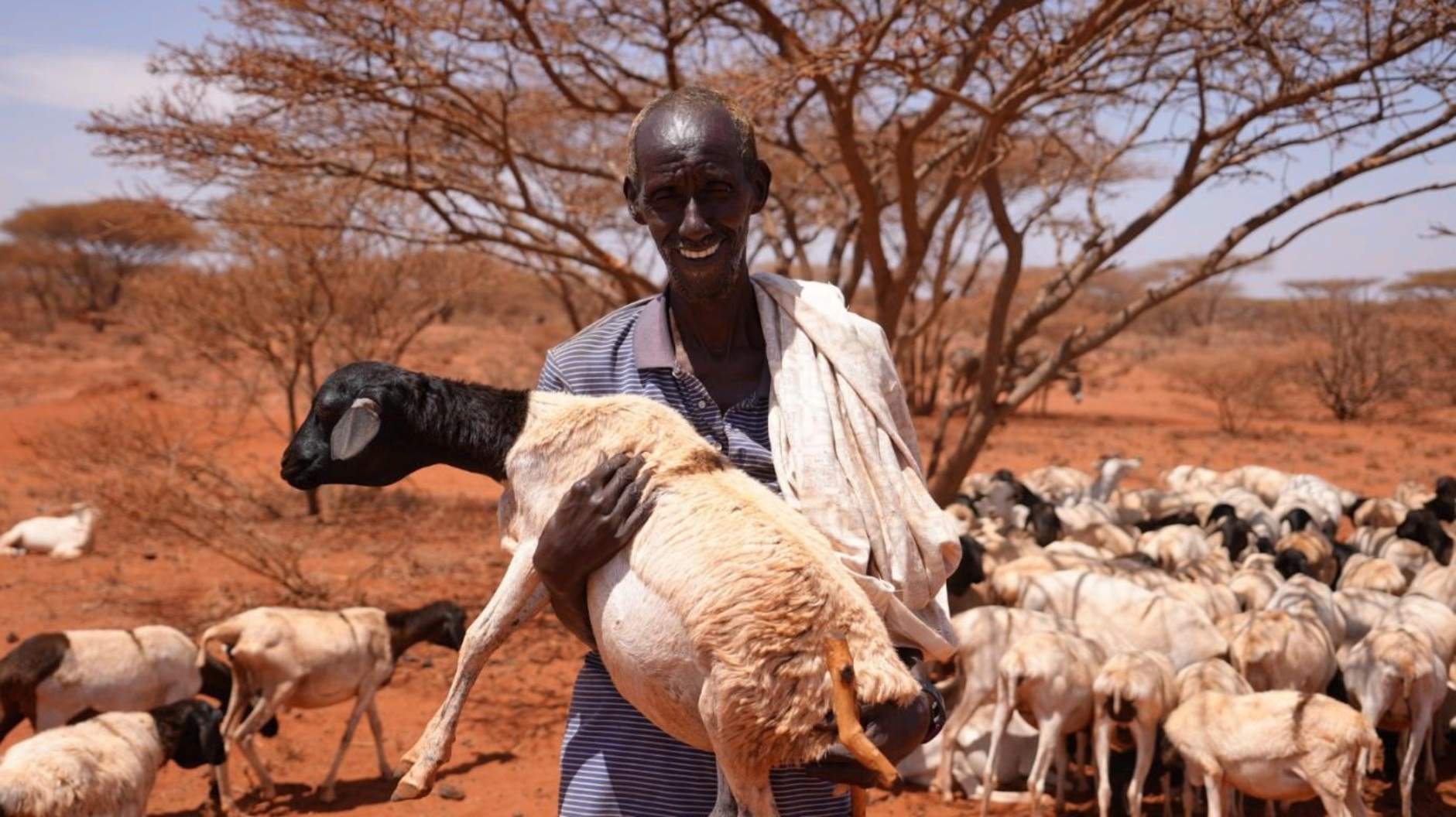
The journey was not an easy one. Arif had lost much livestock by the time he got to Laanle village, which lies 20 km North of Guri’el town, in Glagadud regional state.
“We were fortunate to find this borehole,” said Ali. “It was a life-changing opportunity for my family, having trekked for close to a month to get here “, he added.
Ali is not alone. Over 300 hundred families from Ethiopia have settled around the Borehole since it was established in November 2021.
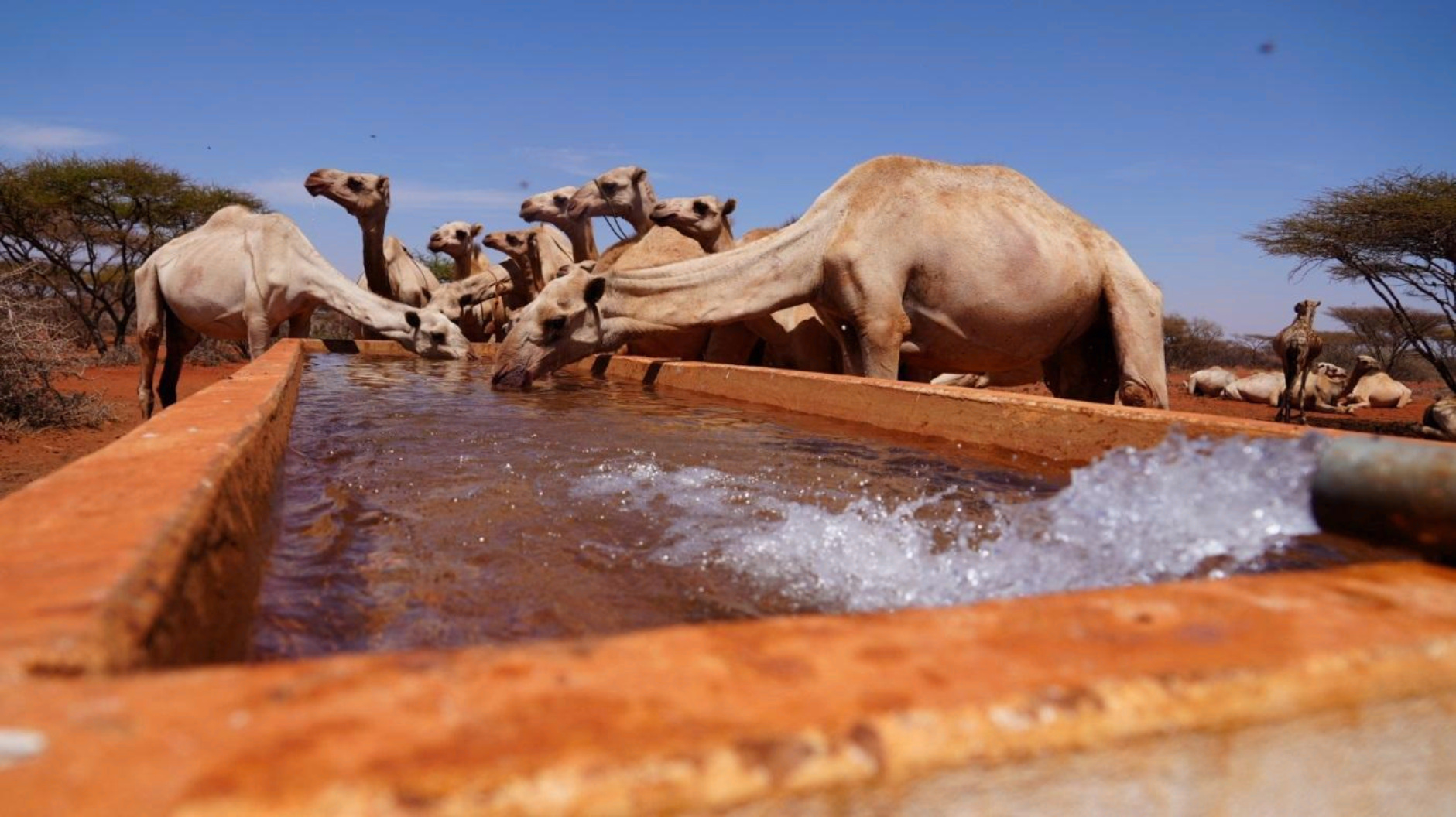
The Borehole was part of the BRCiS II Project that promotes resilience to recurrent shocks in the face of a severe drought across the Horn of Africa region, particularly Somalia and Ethiopia.
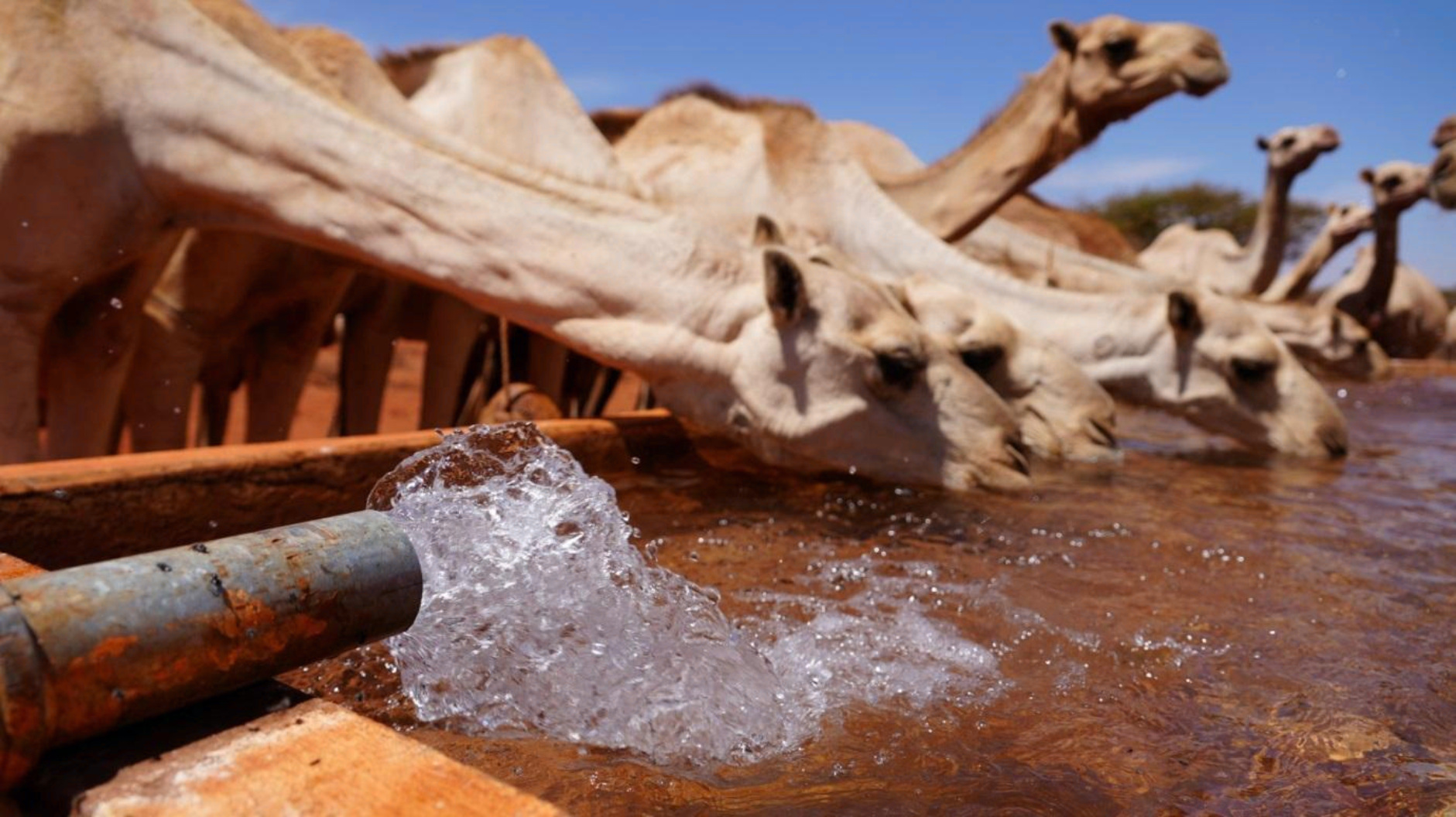
The Borehole serves more than 4000 goats and sheep, about 120 camels and hundred heads of cattle daily. It also serves six other smaller villages that rely on it as a water source through the piped water system, while ten more villages benefit from water trucking.
“I can’t thank enough NRC and those who have worked on this initiative. I am so happy,” said Ali.
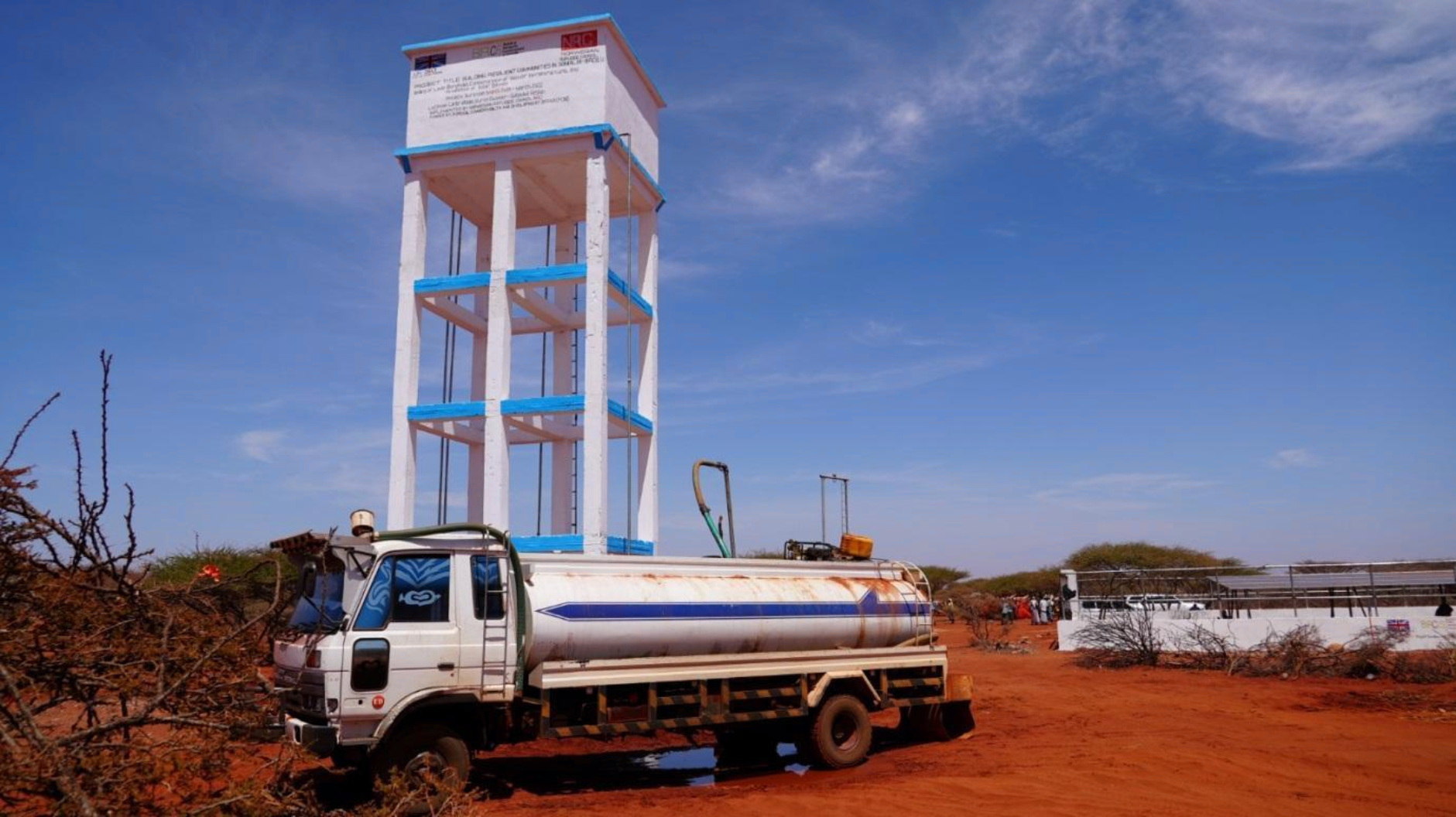
Like many other pastoralist families who have migrated in search of water and pasture, Ali is not planning to go back to Ethiopia any time soon.
“For now, we have settled here, and I don’t think I will go back unless the situation changes,” Said Ali.
Through a community consultation process, the local communities had a role in outlining their priorities.
“As the local community, we had listed water as one of our main priorities when NRC gave us the opportunity. Water is life, and so we thought we should prioritise on it,” said Abdullahi Mohamed Hirsi, who is the local chairman for the community.
“We are grateful to NRC for accepting our request”, he added.
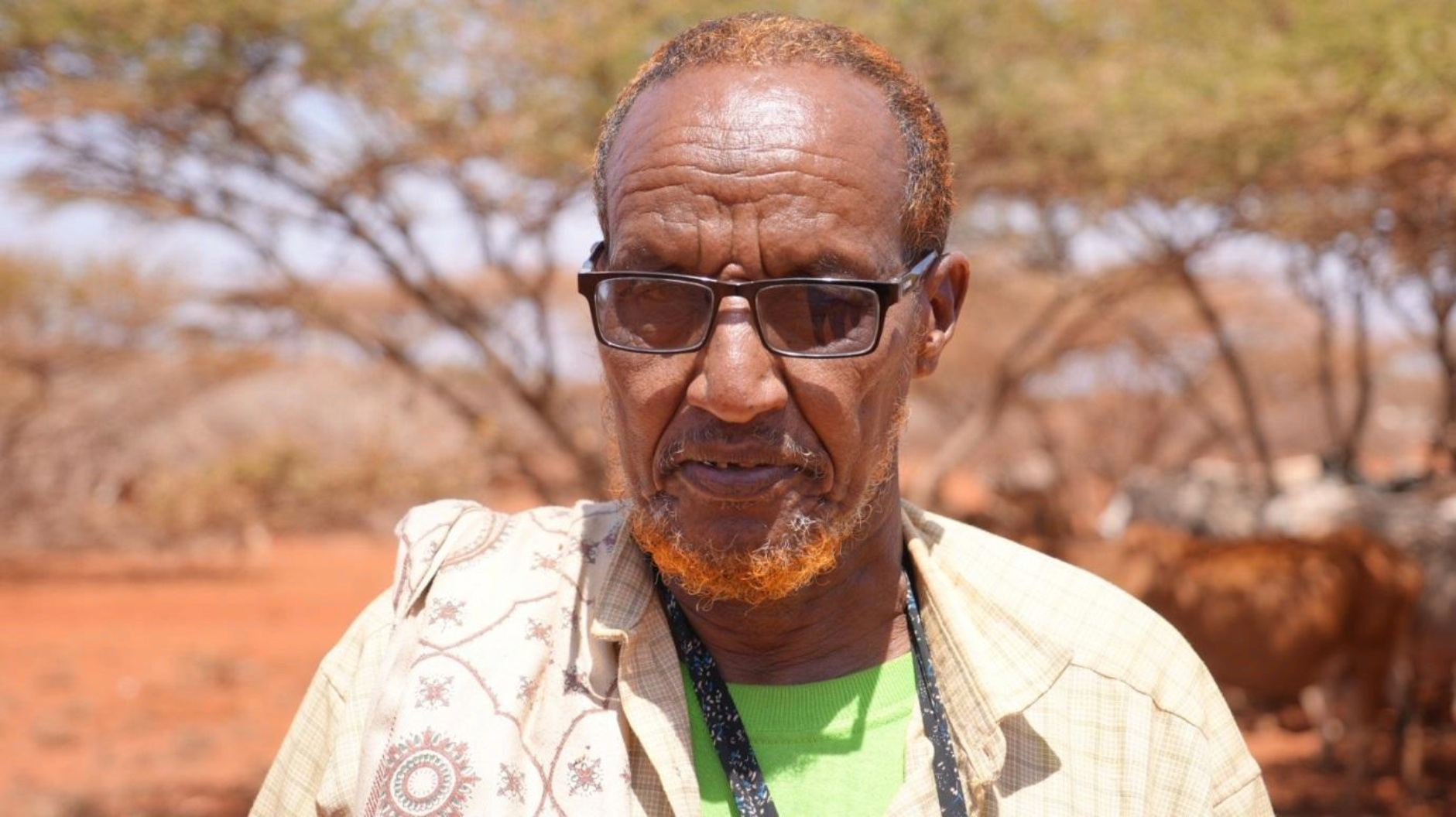
However, as the demand for water increases each day, so is the need to expand the reach of the Borehole.
“We would like to see more boreholes in other villages,” said Abdullahi, adding that many other villages also need water and can’t be served by this Borehole.
For the first time in decades, the establishment of the Borehole allowed the local pastoralist communities not to flee the village because of drought. Instead, they are hosting hundreds, including some who have crossed from Ethiopia.
“This is a significant impact in terms of creating resilience to the shocks caused by the drought,” said Ilyas Sheikh Ahmed, NRC’s field office coordinator for central Somalia.
“We have also provided water tracking services where local communities are offered water at a small fee“, he added.
The pastoralists who migrated have settled around the village, creating other needs such as education and health facilities.
But for now, both the local pastoralists and those who crossed from neighbouring Ethiopia are finding life in this small village.
